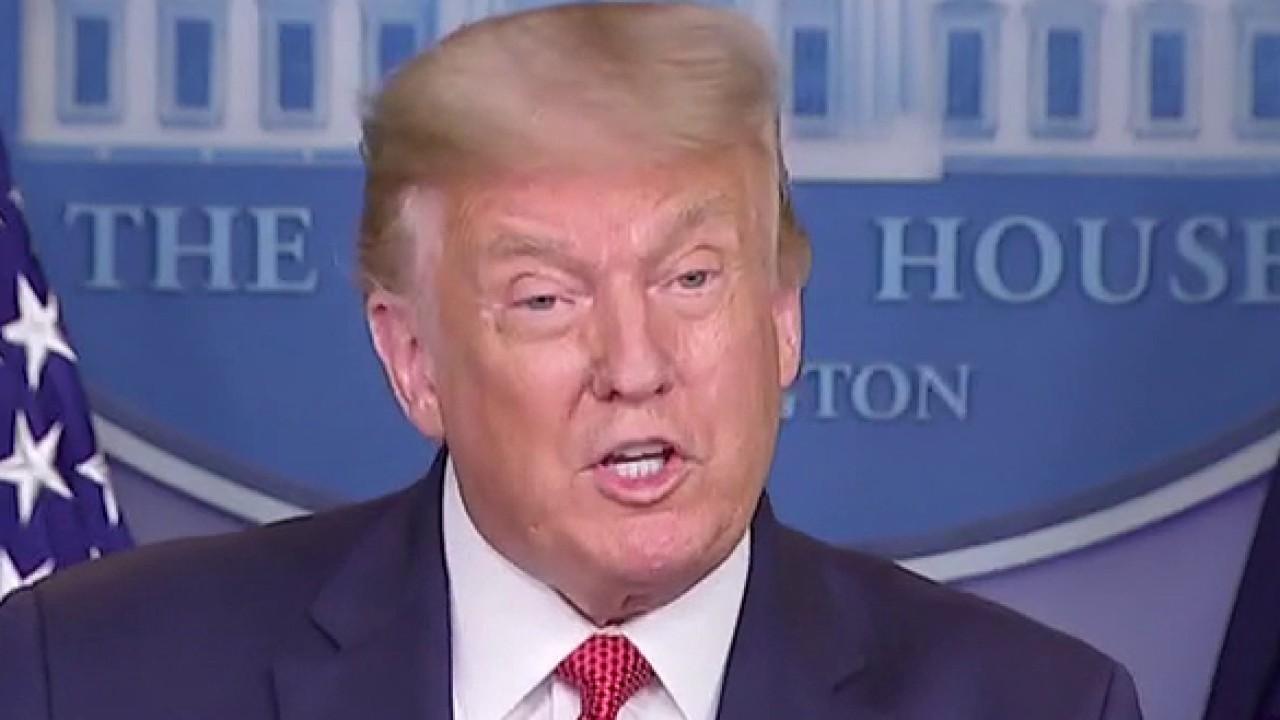Trump’s payroll tax holiday a ‘substantial’ lift for businesses as terms remain unclear
The president is looking to implement the measure by Sept. 1
President Trump is looking to implement a payroll tax deferral beginning next month, but experts warn businesses may not be able to adjust their systems so quickly.
“Changes applied to payroll systems would be substantial,” Pete Isberg, vice president of government relations for payroll processing firm ADP, told FOX Business. “How quickly could this be done – it’s going to be a mixed response.”
TRUMP’S STIMULUS ORDER WOULD INCLUDE PAYROLL TAX DEFERRAL, EVICTION MORATORIUM
On Saturday, the president laid out a plan to defer payroll taxes from Sept. 1 through Dec. 31 for employees whose biweekly wages are less than $4,000, on a pre-tax basis.
Isberg said companies working with large payroll processing firms, like ADP, will likely be able to adjust in time. However, those handling their own payroll systems, for example, may not.
And whether business owners are able to retroactively apply forgiveness is unclear. Isberg, who is in regular communication with the IRS, said a prior ruling by the tax agency on a similar issue indicates that once the taxes are paid they cannot retroactively be refunded.
STIMULUS TALK COLLAPSE: WHAT REPUBLICANS AND DEMOCRATS CAN’T AGREE ON
There are many other unknowns, too, including whether the payroll tax obligations will ultimately be forgiven – or whether they will be due when workers file their returns next April.
Legally, employers remain liable for employment taxes even if they are withheld – unless Congress says otherwise.
It is also unclear whether there will be a phase-out of the benefit starting at the specified wage threshold – or whether it will simply be a “cliff,” Isberg pointed out. A phase-out would create additional work in updating systems.
CLICK HERE TO READ MORE ON FOX BUSINESS
The payroll tax is paid separately from federal income taxes and funds Social Security and Medicare. Employers and employees each pay 6.2 percent for Social Security and 1.45 percent for Medicare, and an additional 0.9 percent is levied on the highest earners.
A suspension of the payroll tax could incentivize employers to hire more workers by reducing their payroll costs while giving employees a boost in their paychecks.
Trump is said to be exploring reducing the capital gains tax rate via executive action. Capital gains taxes are paid on the difference between what an individual originally paid for a property or investment vs. what it sells for at the time it is sold.




















